- Home
- JoAnn Ross
Sea Glass Winter
Sea Glass Winter Read online
PRAISE FOR THE SHELTER BAY NOVELS
Moonshell Beach
“Ms. Ross writes a story that wraps around your heart and ensnares you… . She is a master storyteller.”
—Fresh Fiction
“Ross gradually builds up the sexual tension between her characters with convincing tact in a comfortingly idyllic milieu where nearly everyone else is in love… . [She] satisfyingly fleshes out their mating dance with secondary characters familiar from her earlier books and tantalizing glimpses of stories to be told in future installments.”
—Publishers Weekly
“This is a lovely addition to the Shelter Bay series. Ross builds a charming town filled with good, solid people… making Shelter Bay a place that readers will really want to visit.”
—RT Book Reviews
“I immediately dug into Moonshell Beach and read it cover to cover in two days. I just couldn’t put it down… . Shelter Bay is the kind of town I’d love to live in myself.”
—Love Romances & More
On Lavender Lane
“Cooking, romance, and a warm, inviting setting work their delectable magic in this tender charmer that introduces new characters (and some serious issues) and reprises previous series players.”
—Library Journal
“[A] tear-jerking tale of a commitment-shy professional cook learning to love a former Navy SEAL in idyllic rural Oregon… [a] savory romance.”
—Publishers Weekly
“The Shelter Bay novels have been lauded, and this one is a worthy entry in the series. The characters, especially the recurring ones, are so likable that the reader can’t help getting caught up in the story… engrossing with just enough humor to keep the readers on their toes. I await each new story with anticipation.”
—Fresh Fiction
“Shelter Bay is a town that envelops readers in warmth. This latest entry in the series features a lovely romance that rolls in with the inevitability of the tide. Warning: It is also a foodie book that will leave you hungry—and hungry for the next book, too!”
—Romantic Times
One Summer
“Ms. Ross knows how to tell a story that pulls her readers in and takes them on an emotional journey as they turn the pages. If you’re looking for a fulfilling story that you can’t help but fall in love with, then this along with her other novel in the series, The Homecoming, are two books you shouldn’t pass up!”
—Night Owl Reviews
The Homecoming
“Quintessential Ross, with a terrific romance [and] mystery. Not to be missed.”
—The Romance Readers Connection
“Ross has again hit a homer… an outstanding job.”
—Fallen Angel Reviews
“One of the best books I’ve read this summer… . Ms. Ross penned such emotion into her story line and created characters that you easily fall in love with.”
—Night Owl Reviews
PRAISE FOR OTHER NOVELS BY JOANN ROSS
Breakpoint
“An action-packed thriller that never decelerates until the finish… one of the better high-octane sagas on the market today.”
—Midwest Book Review
Crossfire
“The plot is riveting, the characters sizzle, and the ending will blow you away. Trust me, you do not want to miss Crossfire. But keep in mind once you pick it up, it’s impossible to put down.”
—Fresh Fiction
“[A] can’t-put-down-forget-the-housework-cereal-for-dinner book. The chemistry between Quinn and Cait screams off the page and practically singes your fingers.”
—Romance Junkies
Freefall
“A page-turning mix of danger, suspense, and passion.”
—New York Times bestselling author Iris Johansen
“An incredible story!”
—Fresh Fiction
No Safe Place
“Sizzles with the sensuality and danger fans of her romantic thrillers have come to expect.”
—Publishers Weekly
“A page-turner… . Hop on the Ross Express for a lightning ride.”
—New York Times bestselling author Linda Howard
Impulse
“[A] great love story with all the thrills and chills that will have the readers coming back for more.”
—Fallen Angel Reviews
Blaze
“Seamlessly plotted… . Ross keeps the heat on right to the last page.”
—Publishers Weekly
“Dynamic… fast-paced, utterly engrossing.”
—Romance Reviews Today
Out of the Storm
“Out of the Storm sizzles! A captivating and entertaining blend of romance, mystery, and suspense.”
—Romance Reviews Today
Out of the Blue
“[An] adventurous, exhilarating story. Danger and intrigue are a constant presence. Highly passionate… outstanding.”
—Romance Junkies
River Road
“Skillful and satisfying… with its emotional depth, Ross’s tale will appeal to Nora Roberts fans.”
—Booklist
“The romance… crackles and the verbal sparring keeps the narrative moving along at an energetic clip… delightful.”
—Publishers Weekly
Confessions
“[A] hot, steamy… page-turner.”
—A Little Romance
Also by JoAnn Ross
Shelter Bay Novels
Moonshell Beach
On Lavender Lane
One Summer
The Homecoming
High Risk Novels
Freefall
Crossfire
Shattered
Breakpoint
SEA GLASS WINTER
A SHELTER BAY NOVEL
JoAnn Ross
SIGNET
Published by New American Library, a division of Penguin Group (USA) Inc., 375 Hudson Street, New York, New York 10014, USA
Penguin Group (Canada), 90 Eglinton Avenue East, Suite 700, Toronto, Ontario M4P 2Y3, Canada (a division of Pearson Penguin Canada Inc.)
Penguin Books Ltd., 80 Strand, London WC2R 0RL, England
Penguin Ireland, 25 St. Stephen’s Green, Dublin 2, Ireland (a division of Penguin Books Ltd.)
Penguin Group (Australia), 250 Camberwell Road, Camberwell, Victoria 3124, Australia (a division of Pearson Australia Group Pty. Ltd.)
Penguin Books India Pvt. Ltd., 11 Community Centre, Panchsheel Park, New Delhi – 110 017, India
Penguin Group (NZ), 67 Apollo Drive, Rosedale, Auckland 0632, New Zealand (a division of Pearson New Zealand Ltd.)
Penguin Books (South Africa) (Pty.) Ltd., 24 Sturdee Avenue, Rosebank, Johannesburg 2196, South Africa
Penguin Books Ltd., Registered Offices:
80 Strand, London WC2R 0RL, England
First published by Signet, an imprint of New American Library, a division of Penguin Group (USA) Inc.
ISBN 978-1-101-59023-2
Copyright © The Ross Family Trust, 2012
All rights reserved. No part of this book may be reproduced, scanned, or distributed in any printed or electronic form without permission. Please do not participate in or encourage piracy of copyrighted materials in violation of the author’s rights. Purchase only authorized editions.
REGISTERED TRADEMARK—MARCA REGISTRADA
Printed in the United States of America
PUBLISHER’S NOTE
This is a work of fiction. Names, characters, places, and incidents either are the product of the author’s imagination or are used fictitiously, and any resemblance to actual persons, living or dead, business establishments, events, or locales is entirely coincidental.
The publisher does not have any contro
l over and does not assume any responsibility for author or third-party Web sites or their content.
The recipe contained in this book is to be followed exactly as written. The publisher is not responsible for your specific health or allergy needs that may require medical supervision. The publisher is not responsible for any adverse reactions to the recipe contained in this book.
Contents
Praise
Also by JoAnn Ross
Title Page
Copyright
Dedication
Acknowledgments
Epigraph
Chapter 1
Chapter 2
Chapter 3
Chapter 4
Chapter 5
Chapter 6
Chapter 7
Chapter 8
Chapter 9
Chapter 10
Chapter 11
Chapter 12
Chapter 13
Chapter 14
Chapter 15
Chapter 16
Chapter 17
Chapter 18
Chapter 19
Chapter 20
Chapter 21
Chapter 22
Chapter 23
Chapter 24
Chapter 25
Chapter 26
Chapter 27
Chapter 28
Chapter 29
Chapter 30
Chapter 31
Chapter 32
Chapter 33
Chapter 34
Chapter 35
Chapter 36
Chapter 37
Chapter 38
Chapter 39
Chapter 40
Chapter 41
Chapter 42
Chapter 43
Chapter 44
Chapter 45
Chapter 46
Chapter 47
Chapter 48
Chapter 49
Chapter 50
Chapter 51
Chapter 52
Chapter 53
Chapter 54
Chapter 55
Chapter 56
Chapter 57
Chapter 58
Chapter 59
Chapter 60
Chapter 61
Chapter 62
Chapter 63
Chapter 64
Chapter 65
Chapter 66
Chapter 67
Dillon Slater’s Steam Clam Recipe
Special Excerpt from Castaway Cove
Again, to all the men and women of the military, and their families, for their service and sacrifice.
To Maureen Hallet. When I used Google Earth to buy a lot for our new home three thousand miles away, I had no idea I’d end up living next door to such a great friend and neighbor.
And, as always, to Jay, my very own hero.
ACKNOWLEDGMENTS
With huge thanks to my fantastic publishing team at NAL—
Publisher Kara Welsh, for her unwavering support over so many years; editor extraordinaire Kerry Donovan, for her ability to see the forest for the trees and being, hands down, the best brainstorming editor ever; NAL editorial director Claire Zion, who literally changed my life when she pulled my manuscript out of her slush pile thirty-one years ago; and last, but certainly not least, Mimi Bark, who, with watercolor artist Paul Janovsky, has wrapped my Shelter Bay stories in such beautiful covers.
War is hell!
William Tecumseh Sherman
I’ve got a theory that if you give one hundred percent all of the time, somehow things will work out in the end.
Larry Bird
1
Tech sergeant Dillon Slater’s business was bombs. And in Afghanistan’s Helmand Province, Dillon’s business was booming.
The landscape he was driving his Buffalo armored mine-disposal vehicle through could have come right from the pages of the Old Testament. Years of baking beneath the hot Afghan sun had turned the mud of the compounds as hard as concrete. Unlike some of the royal palaces he’d seen while deployed in Iraq, these dwellings boasted no gaudy exterior decoration. Uniformly putty colored, they were purely functional.
Children waved as the twenty-six-ton vehicle bounced over what felt more like a goat trail than a real road crossing the bleak, moonscape surface.
In earlier deployments, he’d been lucky if his EOD batphone rang a dozen times a week. But the enemy was nothing if not adaptive, and since the country had turned into the Wild West, they’d figured out that it was a lot easier to blow up coalition forces from a distance than to take them on in a shoot-out-at-the-O.K.-Corral-style gunfight situation.
In the past week alone, 212 IEDs had been discovered and detonated. Doing the math—and he had—that worked out to more than 11,000 a year. What had once been a cottage industry—guys making bombs in their mud homes—had turned into an industrial complex capable of knocking out one IED every fifteen minutes, thanks to global jihadists sharing technologies and procedures.
“Crazy,” he muttered as he pulled into the area where a Ranger unit was standing around waiting for him.
He’d been called to this same spot yesterday to remove a crude pressure-plate device next to a basketball court he’d helped build. Together with other unit volunteers, he’d cleared the space and poured the surface, using Quikrete donated by some Navy SEALs. One thing Dillon had learned early on was that SEALs could get their hands on just about anything. Another thing he’d learned was to never ask them where they’d gotten it.
What really chapped his hide was that whatever cretin had planted that IED had been willing to take out the children who played on the court every day—often with troops. The pickup games were more than just a way to burn off energy—they served as yet another attempt to win hearts and minds. Which personally Dillon wasn’t so sure was working, since more people kept trying to kill him every day. But hey, military war policy and nation building were way above his pay grade.
Unlike the previous day, when the square had been filled with civilian onlookers, today the place was mostly deserted.
Which was not good. One of the first things Dillon had learned in training was to look for the absence of normal and the presence of abnormal. Both of which they definitely had here.
Did everyone but them know what was going on? Had the kids who were usually playing roundball on this court been warned to stay away?
The hair on the back of his neck stood up as combat intuition, borne from years of experience, kicked in.
“We’re being set up,” Jason West, one of his team members, said from the backseat as they pulled up next to a Hummer with Arabic writing painted on the side.
On Dillon’s first tour here he’d learned that the script translated to “Not EOD” (Explosive Ordnance Disposal). Having the guys on your side wanting to make sure no one mistook them for bomb guys was an indication of how popular Dillon and his team tended to be with the local population.
“Could be,” he agreed, drawling out his words in his native west Texas twang as he considered that unpleasant prospect. “Then again, we could have some hotshot showing off to his pals by playing with us.”
He jumped down from the Buffalo and went over and talked to the Rangers, the ones who had called in the possible explosive, and they reported that none of the few civilians they’d been able to question had seen anyone plant an IED.
Surprise, surprise.
One of the cool things about the Buffalo was its thirty-foot mechanical arm with both a claw and a camera attached. Returning to the vehicle, he extended the arm to get a better look at the device, which was only partially buried right behind the basket pole.
“Bingo,” he said as the camera eye caught the familiar pink wire an eagle-eyed Ranger, who’d come here for a pickup game, had spotted. “This has cell phone guy’s fingerprints all over it.”
In the beginning, the IEDs Dillon had dealt with had been simple pressure plates. Drive over it, step on it, two pieces of metal connected, and boom.
They’d been crude. Hell, if he�
��d been into bomb making when he was a kid, he could’ve put one together in ten minutes for a fourth-grade science fair project. But they didn’t need to be fancy and high-tech to kill.
The problem was that they also killed indiscriminately, meaning they were just as likely to take out civilians as they were American or NATO forces. Which hadn’t exactly made their makers all that popular.
Then the insurgents had upped their skill set, adding command-wire remote controls to the mix. Bury one in the middle of the road, and if the patrol you’d planned to hit changed routes, you simply turned it off and avoided the collateral damage of blowing up some poppy farmer’s donkey. Or wife. Or child.
Then, just as easily, it could be switched on again when the timing proved right.
In the beginning, garage door openers had been popular. More and more, though, Dillon had been running into cell phones all tied up with pretty pink wires, which tended to make his team edgier—and even, from time to time, paranoid. Was that guy over there talking on his phone really speaking to his wife, telling her what time he’d be home for dinner? Or was he about to hit talk and blow more Americans sky-high?
“We could wait for another robot to be brought in,” said West, who’d been riding shotgun.
Their own robot, Larry, named for robot Larry Fine in Revenge of the Nerds, had been injured when it rolled off a ledge two days earlier, and they were still waiting either to get him back or receive a replacement.
“If it’s a setup, the longer we stay here, the more we become sitting ducks,” said Chance Longstreet, who was in the back, pointing out what they all already knew. “The bastards have already gotten rid of Larry. Why let them take out some more of us?”
Although they’d all been pissed to have Larry out of commission, Longstreet, who operated the robot from a military-grade laptop, took the loss personally.
“Good point,” Dillon said.
Maybe it wasn’t a bomb at all. Maybe just some buried wires designed to pull the team into sniper range. Or worse yet, a kill box. The Buffalo might be armor clad, but if mortars started raining down on them from the roofs of those buildings, they’d all be toast.

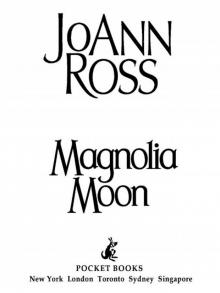 Magnolia Moon
Magnolia Moon Summer on Mirror Lake
Summer on Mirror Lake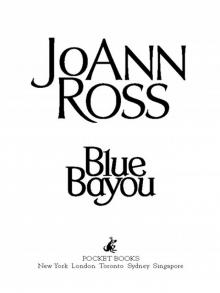 Blue Bayou
Blue Bayou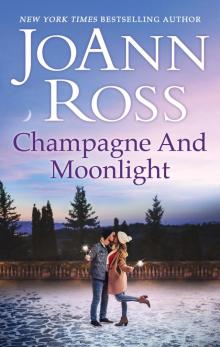 Champagne and Moonlight
Champagne and Moonlight No Regrets
No Regrets Long Road Home
Long Road Home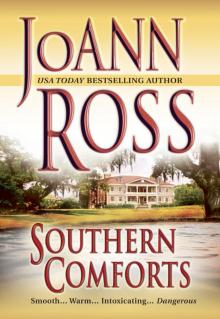 Southern Comforts
Southern Comforts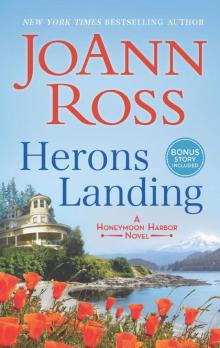 Herons Landing
Herons Landing Untamed
Untamed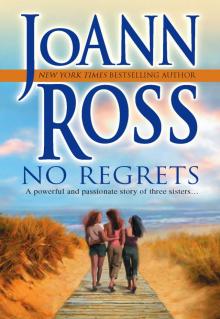 No Regrets (Mira Romance)
No Regrets (Mira Romance) Dark Desires
Dark Desires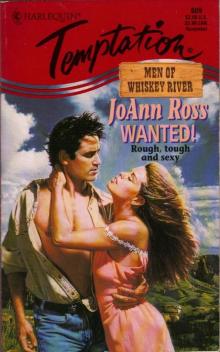 Wanted!
Wanted! River Road
River Road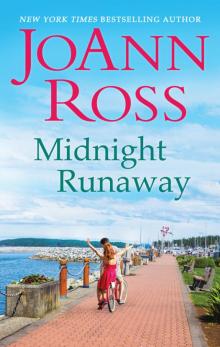 Midnight Runaway
Midnight Runaway The Long Way Back
The Long Way Back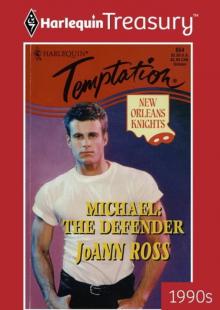 Michael: The Defender
Michael: The Defender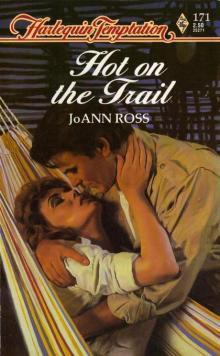 Hot on the Trail
Hot on the Trail When I'm With You
When I'm With You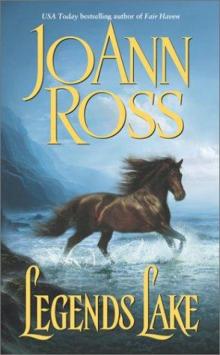 Legends Lake
Legends Lake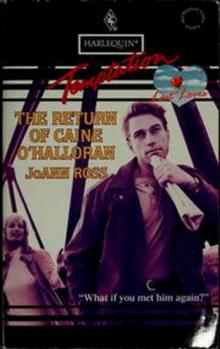 The Return of Caine O'Halloran
The Return of Caine O'Halloran Dance with a Dynasty
Dance with a Dynasty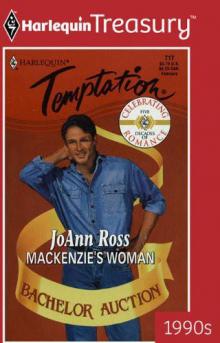 MacKenzie's Woman
MacKenzie's Woman Impulse
Impulse Sunset Point: A Shelter Bay Novel
Sunset Point: A Shelter Bay Novel You Again: A Shelter Bay novella (Shelter Bay series Book 8)
You Again: A Shelter Bay novella (Shelter Bay series Book 8)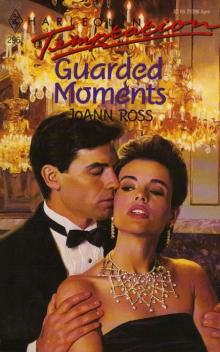 Guarded Moments
Guarded Moments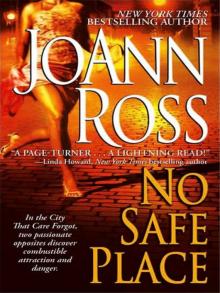 No Safe Place
No Safe Place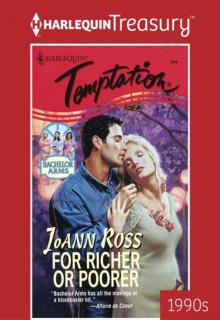 For Richer or Poorer
For Richer or Poorer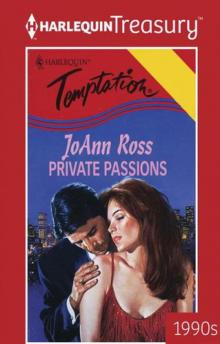 Private Passions
Private Passions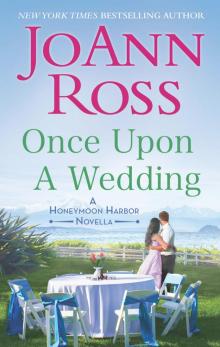 Once Upon a Wedding
Once Upon a Wedding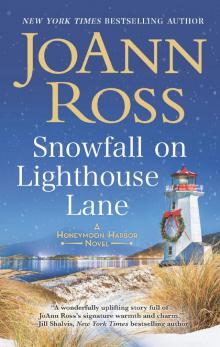 Snowfall on Lighthouse Lane
Snowfall on Lighthouse Lane Christmas on Main Street
Christmas on Main Street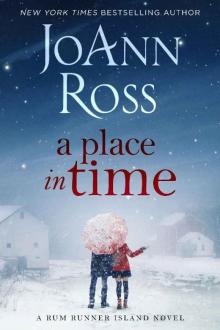 A Place in Time (Rum Runner Island Book 1)
A Place in Time (Rum Runner Island Book 1)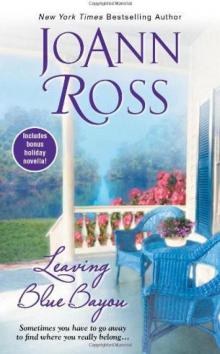 Leaving Blue Bayou
Leaving Blue Bayou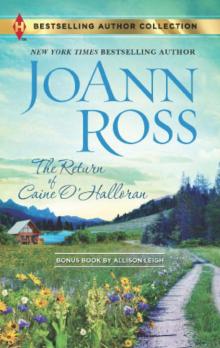 The Return of Caine O'Halloran: Hard Choices
The Return of Caine O'Halloran: Hard Choices Lucky in Love
Lucky in Love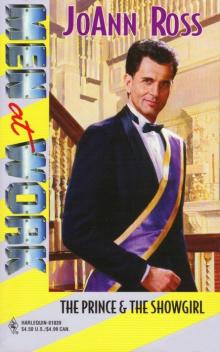 The Prince & The Showgirl
The Prince & The Showgirl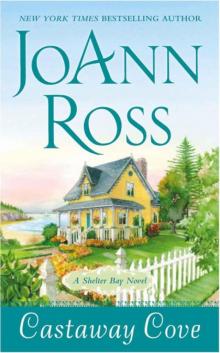 Castaway Cove
Castaway Cove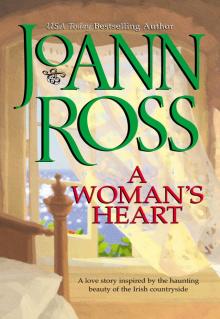 A Woman's Heart
A Woman's Heart One Summer
One Summer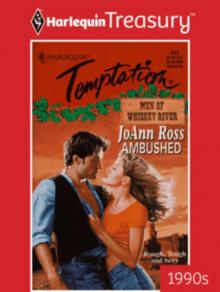 Ambushed
Ambushed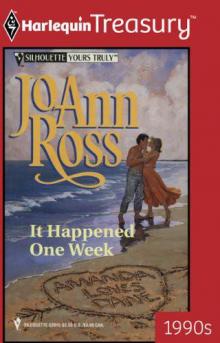 It Happened One Week
It Happened One Week Home by the Sea
Home by the Sea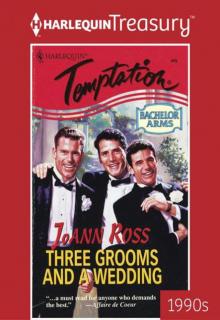 Three Grooms and a Wedding
Three Grooms and a Wedding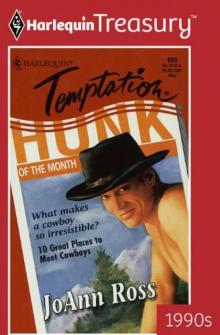 Hunk of the Month
Hunk of the Month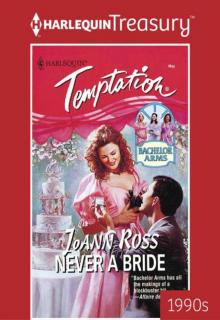 Never a Bride
Never a Bride Sun Kissed
Sun Kissed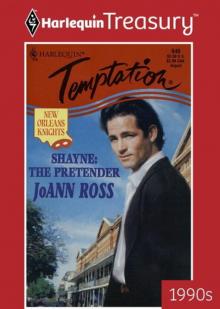 Shayne: The Pretender
Shayne: The Pretender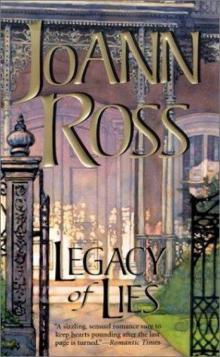 Legacy of Lies
Legacy of Lies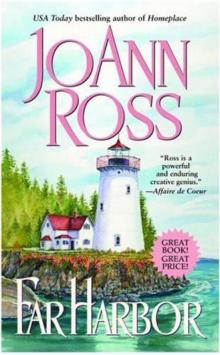 Far Harbor
Far Harbor Finn
Finn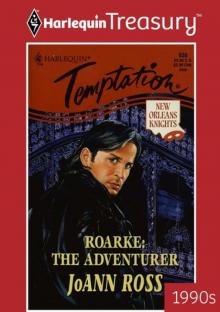 Roarke: The Adventurer
Roarke: The Adventurer I Do, I Do...For Now (Harlequin Love and Laugher)
I Do, I Do...For Now (Harlequin Love and Laugher) Briarwood Cottage
Briarwood Cottage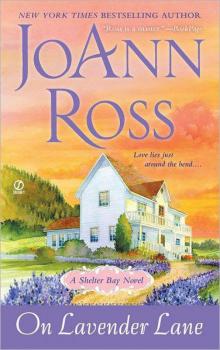 On Lavender Lane
On Lavender Lane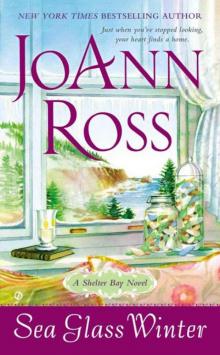 Sea Glass Winter
Sea Glass Winter River's Bend
River's Bend Christmas in Shelter Bay
Christmas in Shelter Bay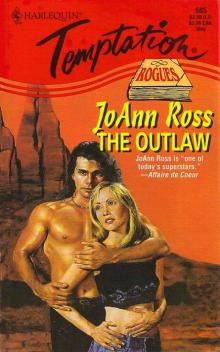 The Outlaw
The Outlaw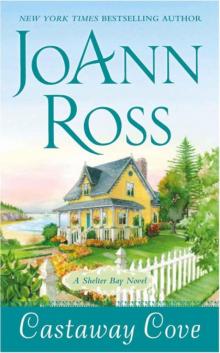 Castaway Cove (2013)
Castaway Cove (2013)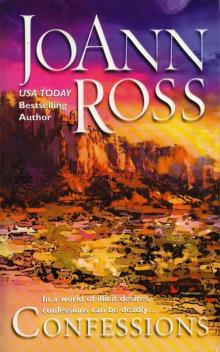 Confessions
Confessions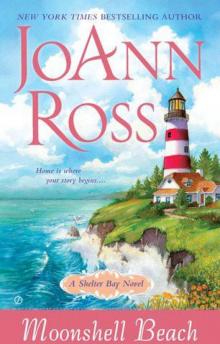 Moonshell Beach: A Shelter Bay Novel
Moonshell Beach: A Shelter Bay Novel